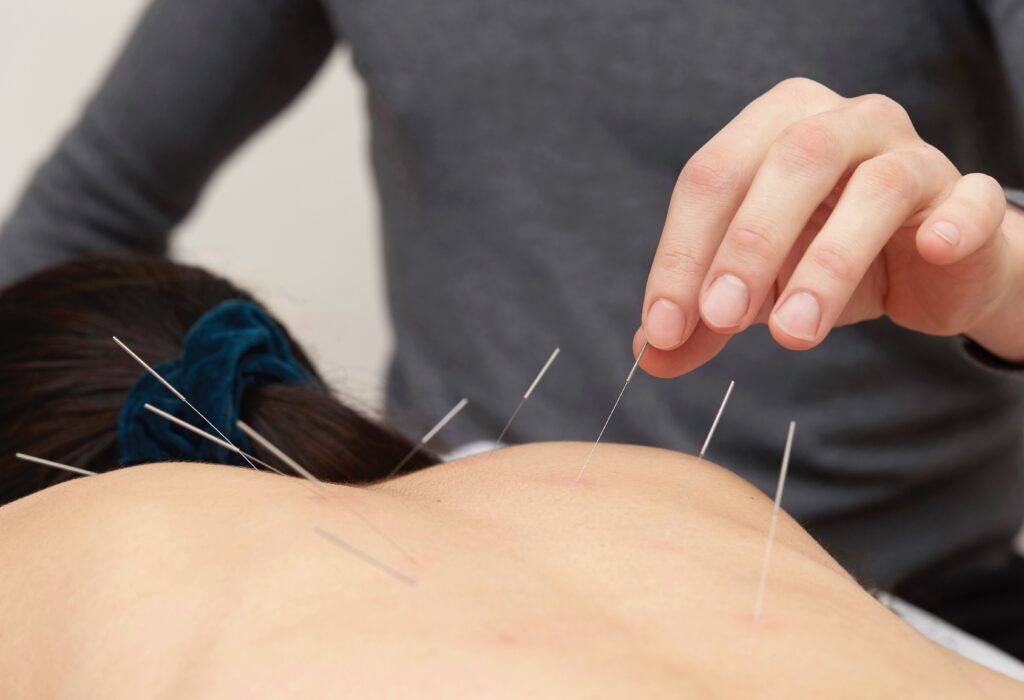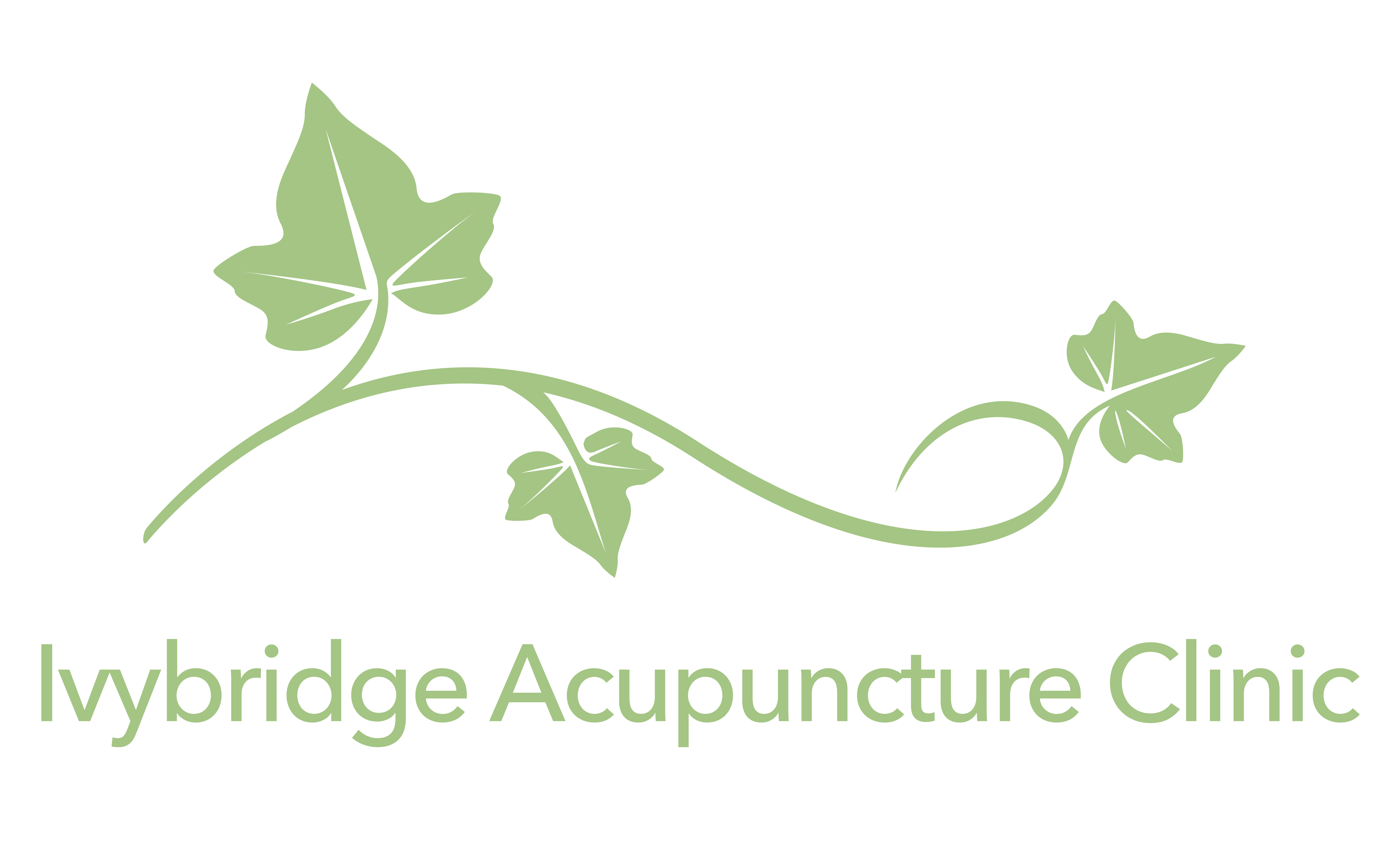Acupuncture Evidence
Acupuncture Evidence in Context
Research is increasingly showing acupuncture to be a safe and effective treatment option for a range of different health conditions. Acupuncture regularly outperforms conventional treatments in both effectiveness and safety in clinical trials. The acupuncture evidence base is growing all the time.
The quality and the amount of acupuncture evidence is naturally stronger for some conditions compared to others. For many conditions, there is promising initial evidence, however we need more high quality research to know for sure, and also to study how long the potential benefits of acupuncture might last.
Please click the buttons below for an up-to-date summary of the latest evidence for different conditions. You can also check out Nick’s acupuncture research podcast where he discusses the latest evidence for acupuncture!

Pain
Acupuncture is a well proven and officially recommended treatment option for many different types of chronic and musculoskeletal pain in the UK (NICE) including:
- Fibromyalgia
- Chronic primary facial pain
- Chronic primary musculoskeletal pain
- Chronic primary visceral pain
There has been a significant amount of research in this field for a range of pain conditions. There has also been a lot of research into the various neurological and bio-chemical mechanisms by which acupuncture works to relieve pain.
Pain killers, Opiods and other medications are not effective for chronic pain and the Opiod crisis in particular has had devastating consequences. “Acupuncture represents a safe and effective alternative with a long track-record of successful use.” Evidence-based Acupuncture.
A recent study found acupuncture to be more effective (and likely safer) than medication or surgery for the treatment of Trigeminal Neuralgia.
As with chronic pain, acupuncture has been definitively shown to be an effective treatment for many types of musculoskeletal pain. The biggest reductions in pain have been found for:
- Neck Pain
- Shoulder Pain
- Osteoarthritis
- Lower Back Pain
There is also some evidence suggesting acupuncture may be effective for other types of musculoskeletal pain such as:
Acupuncture has been definitively shown to be both safer and more effective compared to medication for migraines. Acupuncture is an officially recommended treatment option in the UK (NICE) for migraines and headaches.
A recent high quality trial showed acupuncture to be more effective than placebo and no treatment for Rheumatoid Arthritis (RA) but only followed up short-term.
A recent systematic review found promising but inconsistent evidence for acupuncture for the treatment of Rheumatoid Arthtitis found: “acupuncture alone or combined with other treatment modalities is beneficial to the clinical conditions of RA without adverse effects reported and can improve function and quality of life and is worth trying. Several important possible mechanisms were summarized including anti-inflammatory effect, antioxidative effect, and regulation of immune system function.”
Mental Health
The current evidence indicates that acupuncture may be more effective than medication and could provide similar moderate benefits for anxiety as talking therapies and counselling. Acupuncture can be considered a safe and tolerable treatment option.
There are also several known physiological mechanisms by which acupuncture can directly reduce anxiety. This is a promising area of future research with more studies needed to assess how effective acupuncture may be for anxiety.
SSRIs are currently the first line treatment for depression. However despite this, the most recent systematic review found that: “SSRIs significantly increase the risk of both serious and non-serious adverse events. The potential small beneficial effects seem to be outweighed by harmful effects.”
There is therefore a clear need for safer alternative treatment options Acupuncture and its associated therapies could be considered as a safe and potentially effective treatment for depression. There is a reasonable body of evidence showing that electro-acupuncture combined with antidepressants is more effective than antidepressants alone.
Mechanistic research has shown that acupuncture directly affects several known neurological mechanisms involved in depression and other neuro-psychiatric disorders. More high quality research is needed to fully assess acupunctures therapeutic potential for depression.
There is some initial evidence suggesting that acupuncture could be effective for postpartum depression. As well as improving symptoms of depression, acupuncture also significantly increased oestradiol levels compared with control groups.
Women's Health
Various studies have shown that acupuncture can help with some of the most common menopausal symptoms including hot flashes, sleep and acupuncture may also reduce the risk of developing osteoporosis.
Acupuncture has also been shown to be more effective than conventional treatments for perimenopausal depression although more research is needed in this area.
There is some evidence suggesting that acupuncture may help reduce endometriosis pain.
Given that acupuncture is effective for a range of other pain conditions, suggesting that it may also be beneficial for endometriosis sufferers.
There is also some evidence that “Acupuncture appears to significantly improve the recovery of the menstrual cycles and decrease the levels of BMI and LH in women with PCOS“.
More research is needed in these areas.
The most recent systematic review found that acupuncture can significantly improve pregnancy rates in women also undergoing IVF.
Other Health Issues
Evidence suggests that acupuncture can be more effective than commonly used medications for allergic rhinitis (hay fever). Acupuncture is a recommended treatment in the USA, offering both temporary symptomatic relief and ongoing benefits for up to 3 months after treatment.
There is some evidence suggesting that acupuncture can be beneficial for various heart issues including atrial fibrillation (AF), ventricular premature beat (VPB) Acupuncture may provide similar benefits to medication for the prevention of cardiac arrhythmia.
One high quality trial has shown that acupuncture was effective for reducing heart pain (angina pectoris). Acupuncture may also help reduce the risk of coronary heart disease in patients with fibromyalgia and osteoarthritis.
Acupuncture has been shown to reduce and modulate inflammation in several mechanistic animal studies. A pioneering study from Harvard Medical School showed that acupuncture could effectively mitigate the inflammatory effects of a “cytokine storm”, which is a dangerous inflammatory response seen in severe infectious diseases such as sepsis and COVID-19.
Auto-immune conditions, inflammatory bowel diseases and a wide range of other conditions characterised by chronic inflammation are increasingly prevalent. Conventional treatment options are often limited in their effectiveness or produce too many side effects. The anti-inflammatory effects of acupuncture suggest that it could play an important role in the treatment of these inflammatory diseases.
This is an exciting new field and more clinical research is needed to know for sure just how effective acupuncture may be for these types of conditions.
There is promising initial evidence suggesting that acupuncture-related techniques, including acupressure, could be considered as an alternative or adjuvant therapy for psoriasis in short term.
A recent review found moving cupping therapy or cupping combined with medications was found to be more effective than medications alone for plaque psoriasis. Furthermore, cupping therapy significantly improved psoriasis recurrence rate and was associated with fewer short-term adverse effects.
Oncology
“Most studies show that acupuncture is better than no treatment at all. And that it is as good as, or better than, standard treatment for these symptoms and side effects” (Cancer Research UK).
Whilst acupuncture cannot cure cancer, research has shown that it can help relieve some of the symptoms of cancer as well as the side effects from treatment. Acupuncture is now commonly used as an adjunctive therapy for cancer patients as part of an integrative care package.
There is an increasing amount of evidence that both acupuncture and acupressure help reduce pain intensity for cancer patients.
In a recent large study acupuncture was found to be more effective than conventional treatment for reducing musculoskeletal pain in cancer survivors.
Acupuncture has been shown to effectively relieve pain and significantly improve symptoms of Chemotherapy Induced Peripheral Neuropathy (CIPN) although the benefits may be modest.
These results have been further supported by two recent high quality studies.
Acupuncture can be an appropriate adjunctive treatment for chemotherapy-induced nausea/vomiting and has be shown to reduce the severity of symptoms.
Some initial evidence suggests that acupressure may also be effective but there is less research on this.
Acupuncture has been shown to reduce pain and help alleviate symptoms such as hot flashes, fatigue, sleep disturbance and anxiety in breast cancer patients.
Acupuncture alongside enhanced self-care is “an effective integrative intervention for managing hot flashes and improving quality of life in women with breast cancer”.
Neurological Issues
How Does Acupuncture Work?
Acupuncture has been shown to have a positive therapeutic effect on every physiological system in the body including; the nervous system, the immune system, the circulatory system and the muscles and tissues.
Crucially, acupuncture can help restore the body to homeostasis (internal physiological balance). By regulating the nervous system it can reduce stress and activate our ‘rest and digest’ state, thereby stimulating the body’s own innate healing and recovery mechanisms. This helps explain why acupuncture can potentially be effective for different health conditions.
Is Acupuncture Safe?
Yes! Several large-scale studies have been conducted on the safety of Acupuncture. Considering all the possible risks the research repeatably demonstrates that acupuncture is an exceptionally safe therapy when provided by properly trained professionals.
It produces considerably less side effects compared to most medications and serious adverse reactions are very rare.


